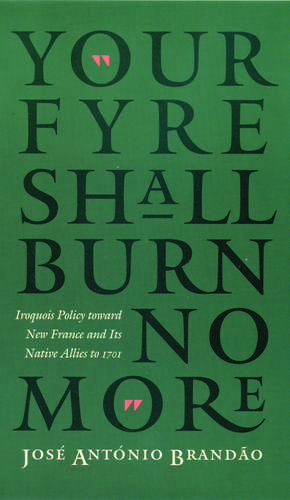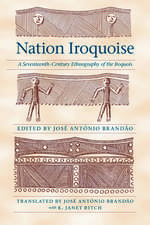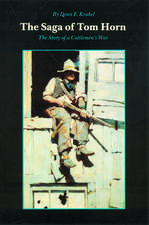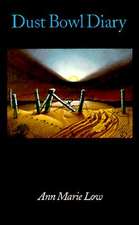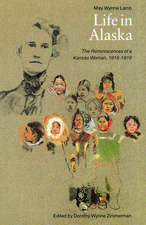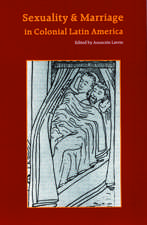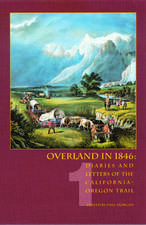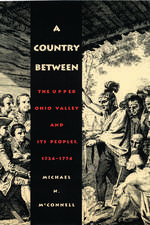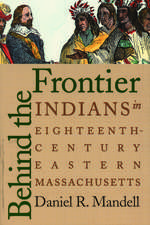"Your fyre shall burn no more": Iroquois Policy toward New France and Its Native Allies to 1701: The Iroquoians and Their World
Autor José António Brandãoen Limba Engleză Paperback – 31 iul 2000
Why were the Iroquois unrelentingly hostile toward the French colonists and their Native allies? The longstanding "Beaver War" interpretation of seventeenth-century Iroquois-French hostilities holds that the Iroquois’ motives were primarily economic, aimed at controlling the profitable fur trade. José António Brandão argues persuasively against this view. Drawing from the original French and English sources, Brandão has compiled a vast array of quantitative data about Iroquois raids and mortality rates. He offers a penetrating examination of seventeenth-century Iroquoian attitudes toward foreign policy and warfare, contending that the Iroquois fought New France not primarily to secure their position in a new market economy but for reasons that traditionally fueled Native warfare: to replenish their populations, safeguard hunting territories, protect their homes, gain honor, and seek revenge.
Din seria The Iroquoians and Their World
-
 Preț: 192.66 lei
Preț: 192.66 lei - 18%
 Preț: 970.29 lei
Preț: 970.29 lei -
 Preț: 172.48 lei
Preț: 172.48 lei -
 Preț: 134.86 lei
Preț: 134.86 lei -
 Preț: 224.43 lei
Preț: 224.43 lei -
 Preț: 248.10 lei
Preț: 248.10 lei -
 Preț: 429.67 lei
Preț: 429.67 lei -
 Preț: 323.53 lei
Preț: 323.53 lei -
 Preț: 178.00 lei
Preț: 178.00 lei
Preț: 133.00 lei
Nou
Puncte Express: 200
Preț estimativ în valută:
25.45€ • 26.64$ • 21.18£
25.45€ • 26.64$ • 21.18£
Carte tipărită la comandă
Livrare economică 31 martie-14 aprilie
Preluare comenzi: 021 569.72.76
Specificații
ISBN-13: 9780803261778
ISBN-10: 0803261772
Pagini: 377
Dimensiuni: 152 x 229 x 15 mm
Greutate: 0.53 kg
Editura: Nebraska Paperback
Colecția University of Nebraska Press
Seria The Iroquoians and Their World
Locul publicării:United States
ISBN-10: 0803261772
Pagini: 377
Dimensiuni: 152 x 229 x 15 mm
Greutate: 0.53 kg
Editura: Nebraska Paperback
Colecția University of Nebraska Press
Seria The Iroquoians and Their World
Locul publicării:United States
Notă biografică
José António Brandão, coauthor of My Country, Our History, is an assistant professor of American Indian history at Western Michigan University.
Recenzii
"Using an imposing array of primary-source French, English, and Dutch documentation throughout the book, Brandão dramatically demonstrates that there is little or no evidence to support the Beaver Wars theory. . . . This well-written treatise is a major contribution to the study of both New France and the Iroquois."—Journal of American History
"This is an important contribution to the scholarly literature and students of Iroquois-French relations who ignore it do so at their peril."—American Historical Review
"Tightly focused and concise . . . Students will enjoy this book, not simply for its economy and the clarity of its arguments, but also for its appendices, which provide 'box scores' of 100 years of Iroquoian conflict."—Canadian Historical Review
